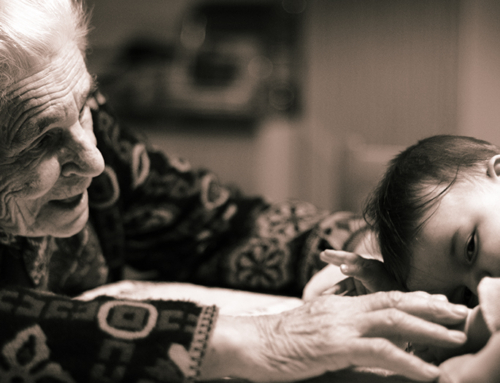By: Laura El Alam
How to Support a Loved One Who Converts to Islam
Is there a new convert to Islam in your life? If the conversion of friend or family member came as a surprise, you might find yourself feeling confused, concerned, or upset. Maybe you’ve never heard or read anything positive about Islam and find it hard to understand why anyone would choose that path. Perhaps you assumed your loved one would always adhere to the faith of their upbringing, and now you are worried about the fate of their soul. Maybe you’re afraid Islam will change them in some fundamental way, and you won’t even know them anymore. You might feel like they’re turning their back on their family or culture. Those feelings can be scary and upsetting and can keep you from having constructive conversations or a good relationship with the new Muslim in your life.
Before you rush to harmful conclusions or ruin your relationship with them, here are some suggestions:
-
Listen to Their Reasons for Converting.
Really listen, with an open mind and heart. Every single convert I know devoted a great deal of thought, research, and soul-searching to their decision. They chose Islam for the best of reasons: for a deep belief in One God, self-improvement, justice, or contributing to a better world. Try to put your preconceived notions aside and hear them out. You may be surprised at their reasons for converting, the fulfillment they find in Islam, and their plans for the future. You will also likely find that many of their core values and personality traits remain the same.
-
Recognize That You Probably Have Many Misconceptions About Islam.
Chances are, the picture presented to you about Islam by the media has not been fair. There are some institutions and people that are downright Islamophobic and purposely propagate misinformation about the faith and its followers. Give yourself a chance to learn from your friend or family member. You deserve to know. You can also do this by talking with knowledgeable Muslims and reading trustworthy books and websites.
-
If the Prospect of Change Scares you, Try to Look at the Big Picture.
Does it bother you that the new Muslim in your life has altered some aspects of their behavior? Maybe they have given up some things that you consider fundamental to your culture like alcohol, pork, or dating. Possibly their new way of dress is unfamiliar and different, and this might bother you. If you find that certain aspects of the convert’s lifestyle are upsetting you, maybe you should reflect on why you are taking their changes personally. After all, they are not requiring you to follow their new rules. Can you acknowledge that their new choices might actually be better for them, their health, and their morality? Can you make room in your heart for someone who is different from you, knowing that their choices are not a condemnation of you or a threat to you? At the end of the day they remain the same person you love.
-
Pick Your Battles.
If a few of their life changes really affect and upset you, look for a way to compromise that does not jeopardize their new faith. Communication and mutual respect will allow you to continue nurturing your relationship. Speak up – gently and tactfully – about any concerns you have and commit to finding a peaceful solution.
-
Remember Their Spiritual Journey is Theirs.
Each of us must take ownership and responsibility of our own soul. No one else can do that for us. Religion is deeply personal, and we need to give our loved ones the space to make their own spiritual decisions.
-
Don’t Take it Personally if They Choose to Practice a Faith That is Different Than Yours, Even if You Raised Them.
They are not rejecting you. This is not an act of rebellion. Converting to Islam is a huge commitment that people don’t take lightly, as it requires many lifestyle changes, sacrifices, and a firm dedication to learning and growing. In fact, converts in countries where Islam is a misunderstood minority religion should be commended for their courage and determination, as they will face many obstacles. Resolve to respect and support your loved one’s spiritual path, even if it diverges from your own. If it helps you, look for commonalities between your faith and theirs. There are countless similarities between Islam, Judaism, and Christianity, for instance, and bridges can easily be built from our common values, traditions, and goals.
-
Prepare to See Them Shine.
Know that Islam requires its adherents to be honest, kind, courteous, wholesome, and modest.
A sincere Muslim is a good neighbor, a loyal family member, and a responsible citizen. If you give the new convert in your life a chance to settle into their new lifestyle, learn, grow, and develop confidence, you will see what kind of person they become. You will probably be pleasantly surprised. Many converts transform into better versions of themselves as they give up bad habits and embrace a wholesome lifestyle in accordance with Islam. -
Would You Rather Have Them in Your Life, or Out of It?
Your behavior will determine what happens next. Some families disown converts or shut them out completely, and then miss out on years of togetherness. Others make room in their hearts for them, even when change is challenging, and they reap the rewards of still having that person in their life. In addition, they often gain new friends, family members, and even a new worldview that they never considered before. Embracing the convert in your life can actually open doors you never imagined and truly enrich your life.
Raised in a Midwestern Catholic family, Laura El Alam became a Muslim in 2000. She is a prolific writer whose work has been published in various magazines. Laura is the founder of Sea Glass Writing & Editing www.seaglasswritingandediting.com and runs the Facebook page The Common Sense Convert which aims to provide a beneficial online forum for Muslim women.
Got Questions?
We have Answers. Get in touch now.








